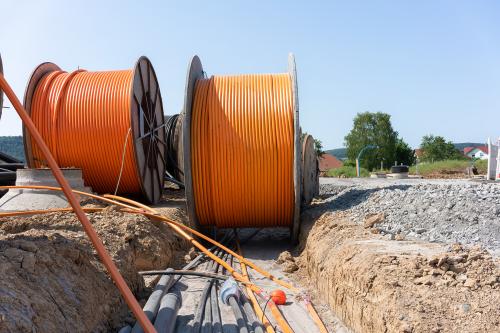Smart meters and streetlights. Autonomous vehicles. Air quality sensors. These and other “smart city” innovations have the potential to generate vast quantities of data for cities and their residents, and universities are stepping up by investing in new efforts to catalyze the research, development, and deployment (RD&D) of such urban technologies. And by partnering with their communities, universities are pioneering innovations to improve the effectiveness of government, make cities better places, and even save lives.
University-led smart-city initiatives benefit from universities’ core strengths: talented researchers, technical competency, translation skills, long-term research agendas, and the administrative capacity to handle sensitive data acquisition and analysis. But the most promising university-led efforts go further and work closely with local government, industry partners, and city residents. As noted by the National Resource Network, when structured to promote engagement with surrounding communities, city-university research partnerships can lead to more policy-relevant research and projects that improve urban environments and local government.
For many years, these community-grounded research partnerships weren’t the norm. But universities are starting to realize that they can be powerful developers of urban technologies if they embrace their positions as both research hubs and local civic and economic development leaders.
In Pittsburgh, a group of Carnegie Mellon researchers have launched a project to engage residents around air quality monitoring and improvement. Through a partnership with the public libraries, air quality monitors are available for free checkout at 14 branch locations. Residents can learn to take readings of air quality in their neighborhoods, and have opportunities to consult with experts to interpret the results and develop action plans that can improve their health.
In Chicago, the “Array of Things” sensor network aims to become a “fitness tracker for the city,” providing real-time data on environmental conditions, traffic, and noise in 500 locations around Chicago by 2018. Led by the University of Chicago’s Center for Urban Computation and Data, the project has attracted $3.1 million from the National Science Foundation. Partnerships with the City of Chicago’s Department of Innovation and Technology and civic groups like the Smart Chicago Collaborative help ensure that this network launches with strong privacy policies and engagement of the residents who will be affected by the sensors.
In Portland, Ore., Portland State University, the city, the transit agency, and a range of technology companies are collaborating on the Powell-Division Corridor Smart City Laboratory ahead of the launch of a new bus rapid transit line. By establishing all of the instruments to monitor conditions along the line before, during, and after service begins in 2020, the city will have the ability to see the impact on the environment, resident health, and access to jobs and services.
By maintaining a sharp focus on the public good and the needs of cities and their residents, these local partnerships have already become drivers of innovation that matters.
A promising development to help scale these efforts is the MetroLab Network, a formal membership organization comprising more than 30 city-university partnerships nationwide. Incubated by and housed at Carnegie Mellon University, the MetroLab Network is designed to cultivate these city-institutional experiments by enabling faster knowledge transfer, quicker launch of multicity partnerships (as Chicago, Boston, Seattle, and more are doing with the Array of Things project), and shared practices and standards. It also hopes to provide structured incentives—joint fundraising, shared services, privacy policies, data platforms—to overcome the high costs of collaboration and keep its members engaged with each other.
If it is successful, the MetroLab Network will help its members adapt more quickly to rapidly changing information technology through collaboration. While the network is nascent, its members are trailblazers with track records. Strong partnerships in Pittsburgh, Houston, New York, and Chicago have been in progress for years, supported by anchor universities that have long relationships with the cities they call home.
The network has the potential to be a force multiplier, creating an investment-ready platform of durable partnerships that are redefining what it means to be an intelligent city. Universities, government, urban practitioners, and local communities would be wise to see that such structured urban RD&D partnerships have benefits far beyond the cities and universities that anchor them, and invest accordingly.
Editor’s Note: Alaina Harkness is a fellow at Brookings while on leave from the John D. and Catherine T. MacArthur Foundation, which is a donor to the Brookings Institution and a funder of the MetroLab Network. The findings, interpretations, and conclusions posted in this piece are solely those of the author and not determined by any donation.



Commentary
Hardwiring urban innovation: RD&D partnerships for 21st century cities
July 11, 2016